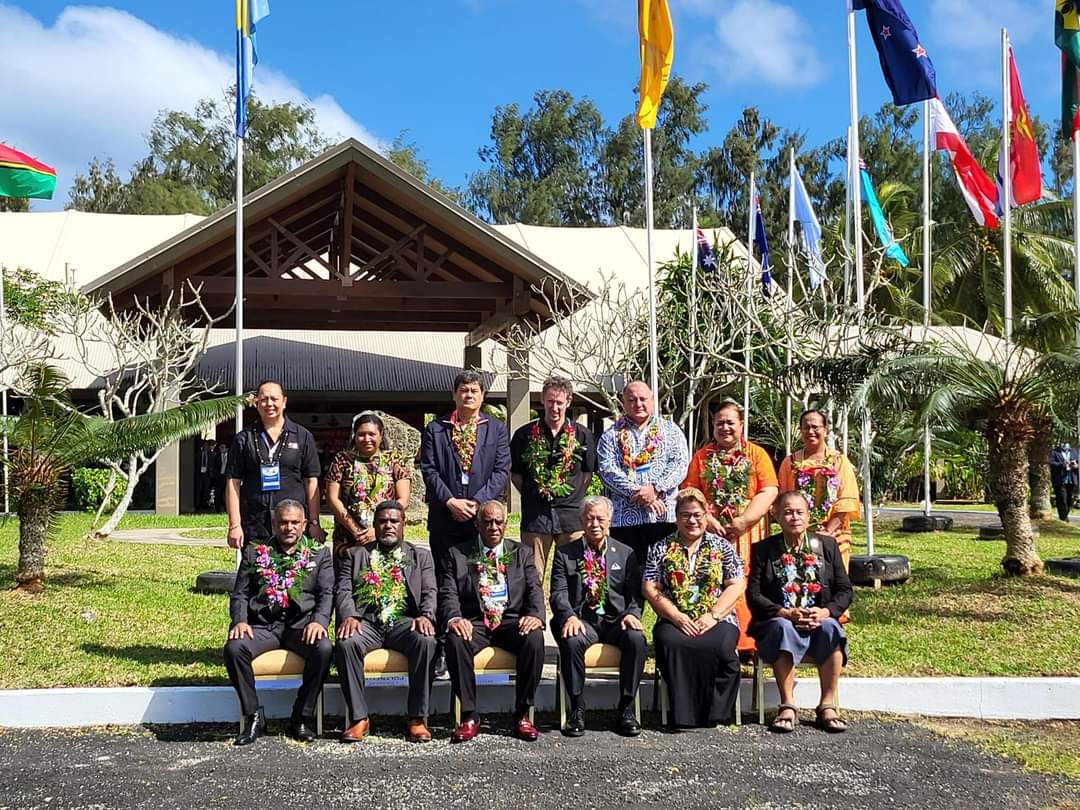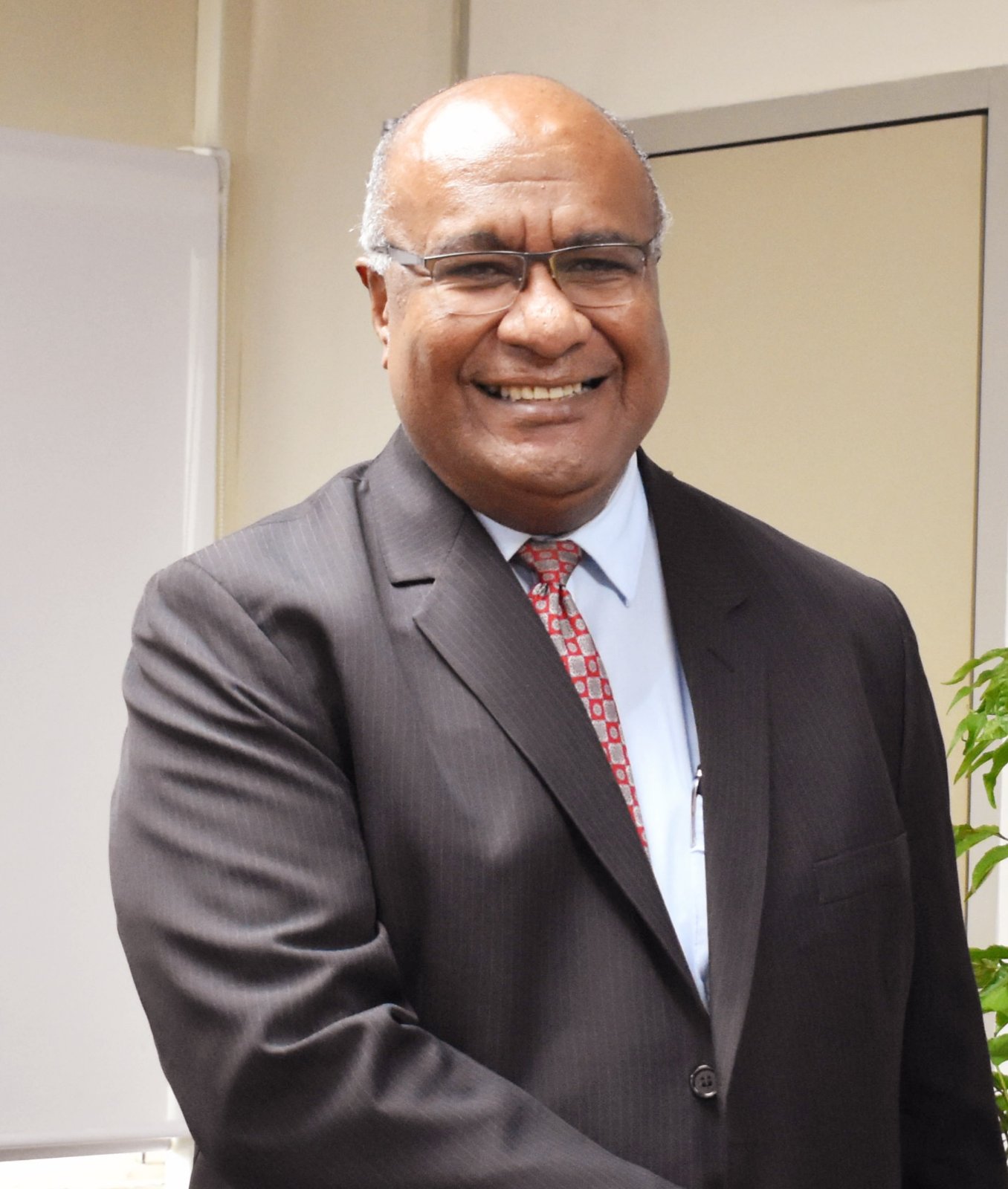Honourable Chair
Colleague Ministers and Heads of Delegation
Secretary General and Heads of CROP Agencies
OPENING REMARKS
Thank you for this opportunity to present on the 2050 Strategy for the Blue Pacific Continent.
At the outset allow me to acknowledge our Leaders, our officials, CROP agencies, private sector, civil society and faith-based organisations, and our student and youth population, all of whom have contributed to the Strategy’s development and finalisation.
The Leaders’ endorsement and indeed the successful launch of the strategy in Suva a few weeks ago was testament to all the work, effort and consultation that has been put into the development of this document, and so it would be remiss of me not to recognise that effort here today.
Honourable Chair, when Leaders first called for the development of the 2050 Strategy in 2019, they recognised that escalating climate change impacts, the intensification of geostrategic competition and our existing vulnerabilities would require a long-term strategy to guide how we work together to achieve our vision and broader development objectives.
Since that time, we have seen the world around us become even more perilous, with COVID-19, global power competition, conflict, and climate change all serving to impact our economies and our communities.
THE 2050 STRATEGY
In this context, Leaders’ endorsement of the 2050 Strategy, which sets out our long-term vision and aspirations, and our approach to work together as a collective, I believe, is critical to our long-term survival.
Honourable Chair, as the paper highlights, the 2050 Strategy sets out our long-term approach to work together and frames our regional cooperation around seven key thematic areas:
Political Leadership and Regionalism
People-Centered Development
Peace and Security
Resource and Economic Development
Climate Change and Disasters
Ocean and Environment
Technology and Connectivity
Further to this, each thematic area has its own ‘2050 ambition’ in support of the vision area; while there are 10 Leaders Commitments and key strategic pathways to guide our broad trajectory over the short, medium and long term.
Chair, let me also highlight that the thematic area of resources and economic development is of particular relevance to Forum Economic Ministers.
Its focus includes accelerating the region’s economic growth through strengthened ownership and development of the region’s natural and human resources; diversifying investment portfolios and increasing the role of the private sector in key areas such as fisheries, agriculture, forestry, mining and tourism, and cultural industries, and through strengthened trade facilitation; as well as leveraging our collective solidarity and voice to continue to access climate and development finance, as well as to engage with financiers on debt issues.
As we take the strategy forward, it is important that Economic Ministers’ consider how they can drive these aspirations forward in support of the 2050 Strategy.
NEXT STEPS
Chair, as Leaders have agreed, the next steps in relation to the 2050 Strategy will now move to the development of an implementation plan, which will identify key collective actions under each thematic area, delivery timeframes, implementation arrangements and partners, and resourcing requirements, and I note that the first implementation plan will take a 5-year time frame.
The development of the implementation plan will be member driven, and will involve the contributions of CROP agencies, non-state actors, and wider stakeholders. I would add here that it is important that Ministries of Economy be centrally involved in this process.
Chair, added to this, I would also highlight the importance of ensuring that the development of the implementation plan – particularly in relation to economic issues – be closely linked to the development of the Blue Pacific Economic Strategy (BPES), and I would encourage Ministers to consider that the BPES be aligned directly to the Resources and Economic Development thematic area under the 2050 Strategy.
In terms of the timeframe for the development and finalisation of the implementation plan, it is envisaged that this will be finalised for Leaders’ endorsement when they meet in 2023. If that is the case, I would propose that Economic Ministers may wish to meet some time in the second quarter of next year, so as to endorse the draft implementation plan before it is conveyed to Leaders.
Chair, alongside this work, the review of the regional architecture will also commence, and it will be important for economic officials and Ministers to be thoroughly consulted in this work, so as to ensure that they consider the future Forum and regional Economic Architecture, including in relation to post-CERT mechanisms as part of this review to ensure broad regional cohesion and coherence.
CLOSING REMARKS
Chair, with those remarks, and on behalf of the Co-chairs of the FOC Sub-Committee that has driven this work, I thank you for your consideration and with the Secretariat I look forward to responding to any questions as necessary.
Thank you.



